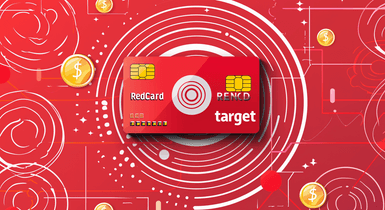How to Cancel a Pending Credit Card Payment?
Contents

A transaction labeled “pending” on your credit card account can spark instant concern, especially if you spot a charge you don’t recognize, notice a duplicate payment, or realize you were billed the wrong amount. A pending status means the payment isn’t fully processed, and the funds haven’t left your account, but your window of time to act is limited.
Can I cancel a pending credit card transaction? Yes, but it requires quick action. Here, you’ll discover the primary ways to resolve the issue before the payment is finalized, avoiding a more complicated refund or dispute process.
Step-by-Step Guide to Cancel a Pending Transaction

How to cancel a pending transaction on a credit card? Canceling a pending transaction process isn’t as simple as hitting an “undo” button. Still, you do have a short window of opportunity. If you act promptly and follow the right steps, you may be able to stop the pending charge before it posts permanently.
Step 1: Check the Transaction Status
To know how to stop a pending transaction, first review your credit card account through your bank’s app or website. Check the status confirming that the payment is still marked as “pending.”
During the authorization hold, it’s easier to cancel a credit card payment. Once the status changes to “sent” or “completed,” your options shrink, and you may have to go through the credit card dispute process instead of requesting a refund.
Pending charges often appear right after purchase but may take anywhere from a few hours to several days to clear. The earlier you notice the problem, the better your chances of stopping it.
Note: Pending payments still affect your available balance. For instance, if your credit limit is $5,000 and you make a $200 purchase, your available credit immediately drops to $4,800, even if the transaction hasn’t been finalized yet.
Step 2: Contact the Merchant

Contacting a merchant is your first and often best line of defense when you wonder how to stop a pending payment for any reason. It’s usually the quickest way to avoid an unwanted charge.
- Call the merchant’s customer service or return to the store where you made the purchase.
- Provide details like the transaction amount, date, and reference number.
- Explain the situation clearly and give the reason you want the payment canceled.
- Ask if they can stop or reverse the authorization before it processes.
If you act within hours of the purchase, merchants can often void the transaction before it finalizes. Stay polite but firm, back up your request with payment-related data to sound confident and prepared. Keeping track of communications by saving all messages, chats, and recordings for future reference would also be beneficial.
Step 3: Reach Out to Your Card Issuer
How to cancel a credit card transaction if a merchant refuses to help you with that? Then, it’s time to call your credit card issuer. Notably, if you suspect fraud, skip the merchant step and go straight to your card issuer or bank.
However, in case of pending payments for regular purchases, merchants can usually provide a quicker refund. Banks and credit card companies, however, are not always able to stop a payment mid-process. They can place a hold, flag the transaction for review, or guide you toward starting a formal dispute once the charge posts, which is a more convenient option for them than handling a pending payment. While possible, canceling a transaction mid-process isn’t always straightforward for card issuers, and the resolution may take a few weeks.
When Can a Card Issuer Cancel a Transaction?

When you try to figure out how to cancel a credit card payment with a card issuer, the answer largely depends on the circumstances. While some pending transactions can be reversed, others must clear before you can dispute them.
Scenarios Where a Card Issuer May Reverse It
Situations when your card issuer can step in and cancel or reverse a pending payment include:
- Fraudulent transactions when you didn’t authorize the payment or money transfer.
- Duplicate charges if the same purchase appears twice on your account.
- Merchant errors when the merchant confirms a mistake and alerts the issuer quickly.
- Recent transactions if you contact the issuer within hours, and the daily processing batch hasn’t closed.
Scenarios Where a Card Issuer May Decline to Reverse It
The cases when your card issuer can’t pull back a transaction, even if it’s still pending, include:
- Valid purchases you approved, even if by accident.
- Subscription payments made on a regular basis and initially authorized by you.
- Transactions in the clearing stage that are already being processed for posting.
- Pre-authorized charges (e.g., hotel deposits or rental carі), which can remain pending for several days.
- International charges, as cross-border transactions often process too quickly, leaving no chance for cancellation.
Conclusion
How to cancel a credit card transaction that hasn’t been completed? Timing is everything. Acting quickly, being well-prepared, and following the correct steps from the start puts you in control and significantly increases your chances of stopping the unwanted payment before it posts. Once it finalizes, your only options are refunds or disputes, which take longer.
FAQ
What’s the difference between a pending transaction and a posted payment?
A pending transaction is a charge that’s been authorized by your credit card issuer but hasn’t been fully processed yet. A posted payment is finalized and included in your official account balance.
How can I cancel a pending transaction on my debit card?
The process is the same for credit cards. Contact the merchant first. If they can’t help, reach out to your bank. If the charge posts anyway, you’ll need to request a refund or file a dispute through your bank. The latter can take more time.
How long does it take to cancel a pending card payment?
If the merchant releases the hold, pending charges usually drop off within 1–7 business days. If the card issuer handles it, the process can take several weeks.
Can I cancel a credit card payment within 24 hours?
In many cases, you can, but it’s not guaranteed. The sooner you contact the merchant or card issuer, the better your chances are of reversing the payment. Once the payment posts, you’ll have to request a refund or file a dispute.
Will canceling a pending transaction entail any fees?
Generally no. Neither merchants nor issuers charge fees for canceling. However, processing delays can temporarily reduce your available credit limit.

![American Express Rewards Checking Review [2024]](https://rates.fm/static/content/thumbs/385x210/9/eb/5wd2gb---c11x6x50px50p--c0db8c7978b18ddea4685f9e51ae7eb9.png)
![Greenlight Debit Card for Kids Review [2024]](https://rates.fm/static/content/thumbs/385x210/8/5f/6hsal3---c11x6x50px50p--12e863420bcf354b35a75bd7002f45f8.png)

